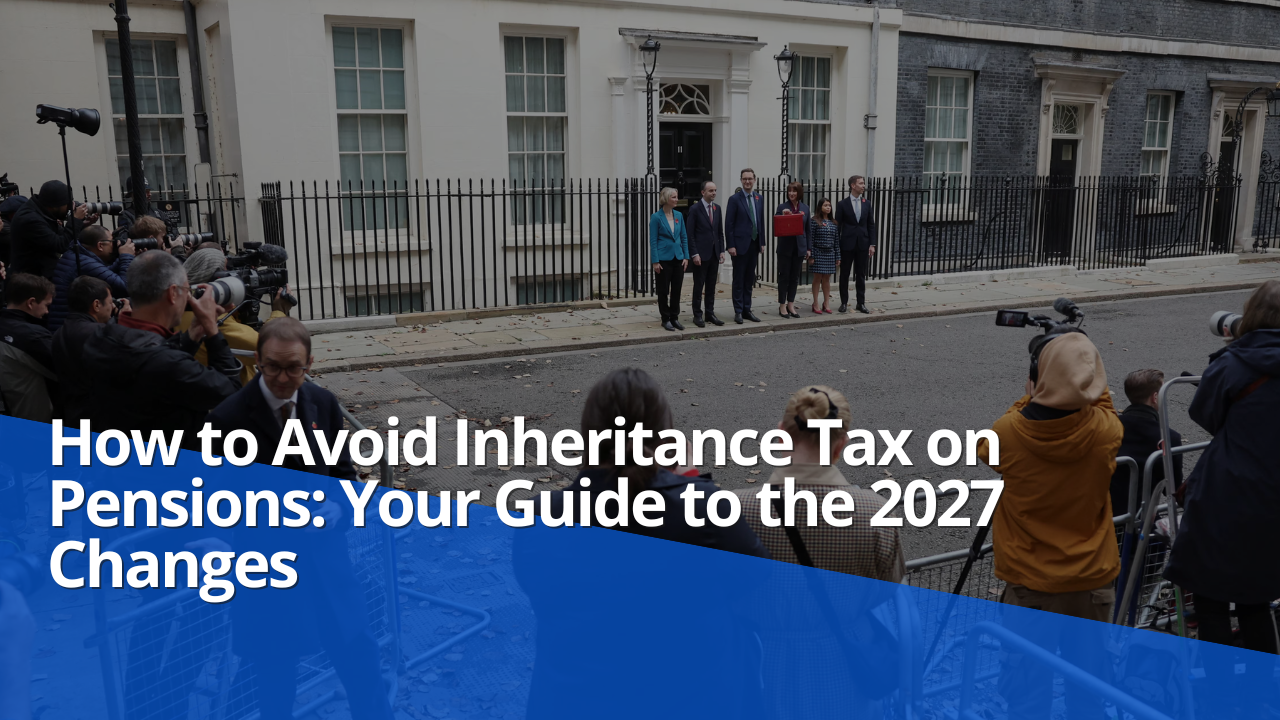How to Avoid Inheritance Tax on Pensions: Your Guide to the 2027 Changes
10 Tips to Save Now
With IHT rules changing in April 2027, proactive planning can minimize your pension’s tax liability. Here are 10 practical tips to save now:
- Nominate a spouse or civil partner: Pensions left to a UK-domiciled spouse are IHT-exempt, ideal for estates over £325,000 or £500,000.
- Draw down your pension: Take income or lump sums (subject to income tax) to reduce your estate’s value, using funds for expenses or gifts.
- Use the annual gift exemption: Gift up to £3,000 yearly without it counting toward your estate, reducing taxable assets.
- Make small gifts: Give £250 per person annually, IHT-free, to multiple recipients to lower your estate.
- Gift surplus income: Regular gifts from excess income are IHT-exempt if they don’t affect your lifestyle.
- Make potentially exempt transfers (PETs): Gifts become IHT-free if you survive seven years, ideal for larger sums.
- Set up trusts: Move pension funds into trusts (e.g., discounted gift trusts) before 2027 to exclude them from your estate (seek advice).
- Invest in Business Relief assets: Hold qualifying investments for two years for 100% IHT relief, an alternative to pensions (there are complexities and a new limit being introduced so seek advice before commencing new investments).
- Update nominations and will: Consider both who benefits from both your will and pension to consider if there are more tax efficient ways of achieving your intentions (e.g. leaving an inheritance to grandchildren if not required by children avoids a layer of inheritance tax passing assets to descendants).
- Consult a financial adviser: Tailor a strategy to your needs, maximizing savings before 2027’s rules apply.
Will Pensions Be Subject to Inheritance Tax?
From 6 April 2027, most unused pension funds and death benefits will be included in your estate for inheritance tax (IHT) purposes, a major change announced in the Autumn Budget 2024 by Chancellor Rachel Reeves. Currently, defined contribution pensions—where you build a retirement pot—are typically exempt from IHT, as they sit outside your taxable estate. This exemption will end, affecting both defined contribution and certain defined benefit pensions. The change targets pensions used as tax-efficient wealth transfer tools rather than retirement income. Understanding this shift is vital to avoid unexpected tax bills and plan your financial legacy effectively.
What Are the New Inheritance Tax Rules on Pensions?
Effective from 6 April 2027, the new rules will include most pension funds and death benefits in your estate’s value for IHT calculations, covering UK-registered schemes and Qualifying Non-UK Pension Schemes (QNUPS). Previously, discretionary payouts by pension trustees kept pensions IHT-free. Now, all payments—discretionary or not—will be taxable if your estate exceeds the tax-free thresholds. Exceptions include dependants’ scheme pensions from defined benefit schemes and lump sums paid to charities. Personal representatives, not pension administrators, will handle IHT reporting and payment. The standard IHT rate of 40% applies to amounts over the thresholds. Draft legislation in the Finance Bill 2025-26 will provide further clarity post-consultation.
When Will Pensions Face Inheritance Tax?
Starting 6 April 2027, unused pension funds and death benefits will be subject to IHT if your estate’s value exceeds the nil-rate band (£325,000) or residence nil-rate band (£175,000, if applicable). For example, an estate with £400,000 in assets and a £200,000 pension totals £600,000, with the excess over £500,000 taxed at 40%. Death in service benefits and joint life annuities remain exempt. If you die before age 75, beneficiaries may receive pensions free of income tax after IHT; after 75, they’ll also pay income tax at their marginal rate. With thresholds frozen until 2030, planning now is critical.
Can My Children Inherit My Pension?
Yes, your children can inherit your pension, but from April 2027, it may face IHT if your estate exceeds the tax-free thresholds. You can nominate beneficiaries, like your children, via an expression of wishes form, which trustees typically follow. If you die before 75, children can inherit as a lump sum or drawdown, but IHT may reduce their share (e.g., a £500,000 pension could incur 40% tax on the excess). After 75, they’ll also pay income tax on withdrawals. Nominating a spouse or civil partner avoids IHT due to the spousal exemption, a key strategy for some. Update your nomination form regularly to reflect your wishes.
How Much Can You Inherit Tax-Free in the UK?
You can inherit up to £325,000 tax-free from your parents under the nil-rate band. If they leave a home to direct descendants, an additional £175,000 residence nil-rate band applies, totalling £500,000 per person. Married couples or civil partners can transfer unused allowances, allowing up to £1 million tax-free for the surviving spouse’s estate. For example, a £600,000 estate, including a home, may only tax £100,000 at 40% (£40,000 IHT). Estates over £2 million lose the residence band due to tapering. Spousal transfers are normally fully exempt. From 2027, pensions in the estate count toward these limits.

